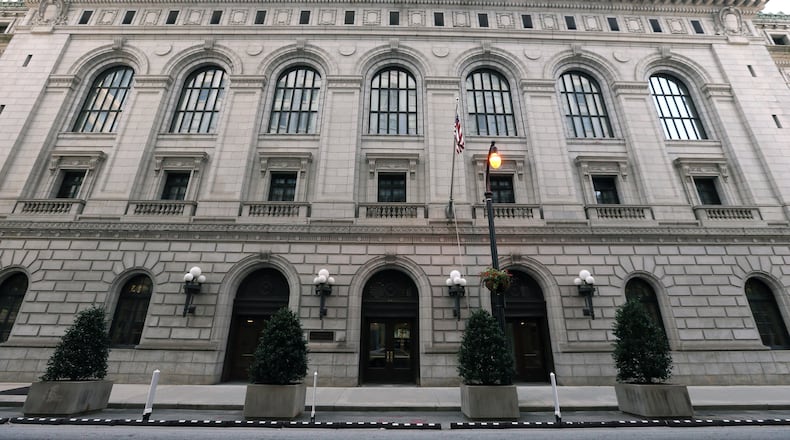A federal appeals court in Atlanta will hear oral arguments Wednesday in a long-running legal dispute between a pair of Native American tribes over an historically significant site in Alabama called Hickory Ground.
The case stems from a lawsuit the Muscogee (Creek) Nation filed in 2012 against the Poarch Band of Creek Indians, Auburn University, the U.S. Interior Department and others.
The suit alleges the Poarch violated federal laws and desecrated the 34-acre site near Wetumpka by removing from it more than 57 bodies of Muscogee ancestors and thousands of sacred artifacts to make way for a casino and hotel.
Listed on the National Register of Historic Places, the site served as the last Muscogee capital before its people were forced west by federal authorities during the deadly Trail of Tears in the 19th century.
Based in Oklahoma, the Muscogee have asked for the site to be “returned to the condition it was in prior to the construction of the casino resort.” They have also asked that the excavated items be returned to their original burial locations.
A federal district court judge in Alabama dismissed the case in 2021, ruling the Poarch have sovereign immunity, the legal doctrine that bars lawsuits against tribes. The Muscogee are appealing to the 11th Circuit Court of Appeals in Atlanta.
“The federal laws we have on the books should be upheld and they should be enforced to protect the sacred sites of tribes that have been removed from their original homelands,” said Mary Kathryn Nagle, a Cherokee Nation citizen and an attorney who is representing the Muscogee.
In court papers they filed last year, the Poarch said the site was privately owned and slated for commercial development before they acquired it in 1980. Four years later, the Poarch gained federal tribal recognition, and the government acquired the land in trust for them.
The Poarch said they worked with experts affiliated with Auburn to excavate the site after the university received federal permits to do the work. Construction of the Wind Creek casino was completed in 2014.
The Poarch released a statement Monday, saying the Muscogee have “consistently mischaracterized the condition of the land when we purchased it and our efforts to preserve and honor its historical significance.”
“They have repeatedly made outright false statements regarding the treatment of remains and artifacts excavated from the site, and they have rebuffed all efforts at compromise or cooperation between our tribes,” the Poarch said.
The Interior Department and Auburn declined to comment. But the university has filed court papers, denying it violated laws and adding that it “stands ready to cooperate and facilitate any relief” ordered by the courts.
Meanwhile, activists supporting the Muscogee cause were preparing to hold a candlelight vigil at Woodruff Park in downtown Atlanta on Tuesday evening. More than 150 were traveling in a convoy from Oklahoma to Atlanta this week, said RaeLynn Butler, the Muscogee secretary of culture and humanities.
“There are over 5,000 living descendants today within the Muscogee Creek Nation who can trace their lineal ancestry back to Hickory Ground in Wetumpka, Alabama,” she said. “These are not forgotten people. We are a strong community. We are here to support Hickory Ground.”
In an interview Tuesday, Poarch Tribal Chair and CEO Stephanie Bryan emphasized the importance of her tribe’s sovereignty and said the excavation at the Hickory Ground site complied with federal law.
“I am very hopeful that at some point in time,” she said, “that the Poarch Creek Indians and the Muscogee Creek can come together as a Creek family and work together for the betterment of the future generations.”
About the Author
Keep Reading
The Latest
Featured




